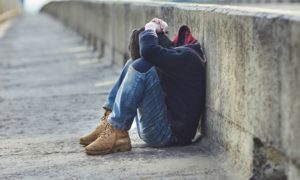Sixteen months after 7-year-old Gabriel Myers committed suicide while taking psychotropic drugs, the state of Florida has banned allowing any children in the state’s custody from participating in clinical drug trials.
It is unclear if Gabriel was involved in any clinical trials. The doctor who prescribed the medicines to him was conducting clinical trials involving psychotropic drops and the Food and Drug Administration sent him a warning letter earlier this year about overdosing children who were involved in those trials.
The Florida ban was imposed after the state tried to find out from the FDA if Gabriel or any other foster care child in Florida was a participant in such trials, and the FDA said it could not disclose such information and that mostly they know participants by only coded identifiers.
Though Florida officials had suggested that, under such circumstances, the Federal Food and Drug Administration ban all foster care children from participating in such trials, the agency refused, saying the children might benefit from the drugs.
In a letter last month, George Sheldon, secretary of the state’s Department of Children and Families (DCF), announced that regardless of the FDA’s stance the state, using “administrative procedures,” was precluding children in state care from participating in such trials.
“Children who come into our care are often the victims of abuse, neglect, and abandonment,” Sheldon said in the letter. “It is therefore imperative that the state do all in its power to stabilize their environment, to protect them from further trauma, and to foster their successful growth into adulthood.”
National Foster Parent Association president Irene Clement wasn’t particularly impressed with Florida’s action.
“What Florida has done is not any different from what other states have done.” Clement said. “If there are children in the custody of the state … it would be seen as exploitation on the part of the state for using this class of children for experimental purposes.”
On the other hand, the Child Welfare League of America does not support a sweeping ban. CEO Christine James-Brown said in a statement that CWLA’s standards do “call for additional protections of [foster children’s] interests in medical research” through appropriate federal-level regulations and youth advocacy.
Before he hanged himself in his foster home, Gabriel had been taking different drugs for a variety of psychological problems – and some of the drugs were not approved for use in children. Some of these drugs, including Lexapro, Vyvanse and Symbyax, had “black box” warnings cautioning dangerous side effects such as suicidal thoughts.
Gabriel was placed in foster care in June 2008 after his mother was arrested on drug-related charges. In under a year’s time he lived in three homes, his last in Margate, Fla.
The psychiatrist who prescribed the drugs to Gabriel, Dr. Sohail Punjwani, received a warning letter from the FDA in February, citing several instances in which he had overdosed patients on an undisclosed drug after not following the trial’s protocol for dosing. One of the patients who overdosed slit her wrists, but survived.































